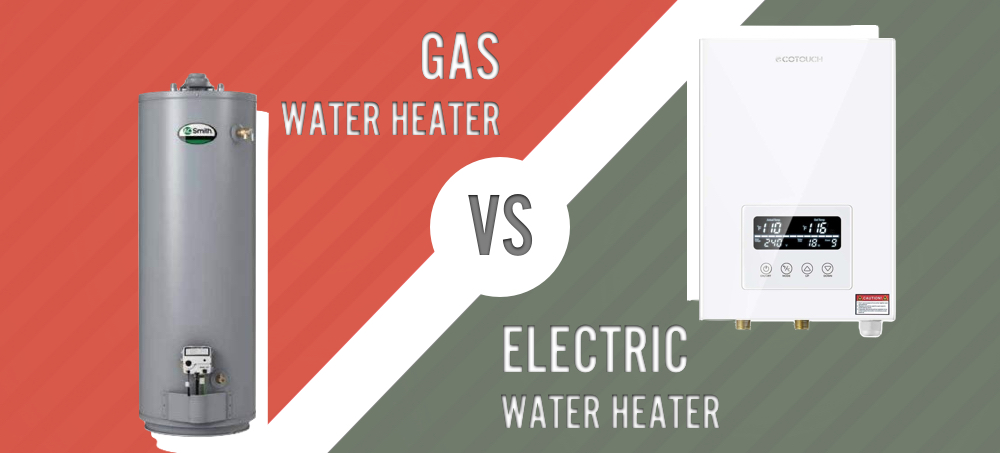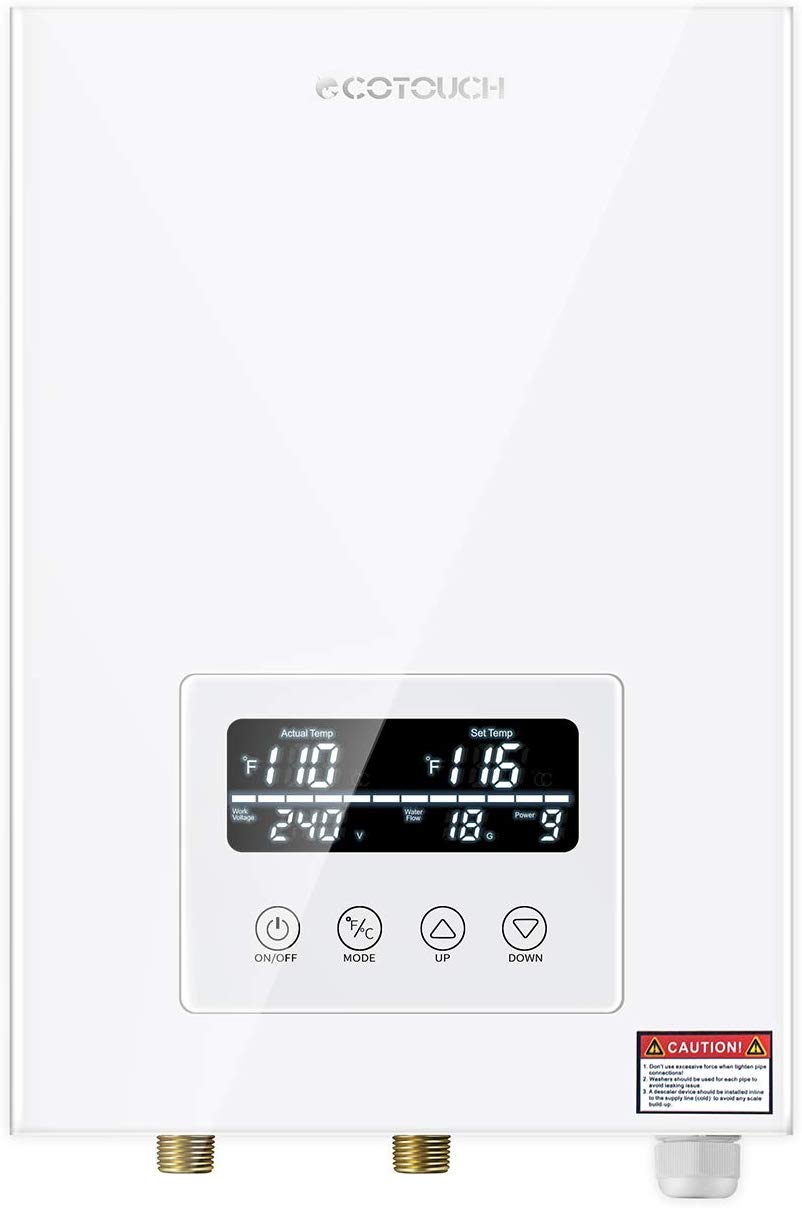Gas vs. Electric Water Heater – Pros & Cons: How To Choose?
Last Updated on December 11, 2021

Hot water is a necessity for everyday activities such as cooking, cleaning, bathing, and doing laundry. For many people, their source of hot water will be a gas or electric heater. If you need a water heater, then you may be wondering whether a gas or an electric heater is right for you. Stay tuned for an explanation of the advantages and disadvantages of each type. Hopefully, you’ll then be able to decide which one is right for you.

Gas Water Heater Image Credit: A.O. Smith, Amazon
Gas Water Heater
The actual cost of a gas water heater is similar to an electric water heater. However, gas water heaters operate using either natural gas or propane. Running your water heater on gas is typically cheaper than using electricity (note: utility costs may vary).
However, you will need to make sure that you have a gas connection in the area where you are going to install your water heater. You will also need to make sure that you have adequate ventilation. This is important since the buildup of combustible gas in a confined area only means bad news. However, venting results in heat loss and adds complexity and cost to the installation process.
Gas water heaters heat water at a faster rate than electric water heaters. If you need lots of hot water at a fast rate, then this could factor heavily into your decision of gas heater versus electric heater.
With proper maintenance, gas water heaters will have similar life expectancies to electric water heaters. This required maintenance, although occasional, will add to the cost/work involved in owning both electric and gas water heaters. If you do run into problems with your gas heater, they are generally easier to repair due to the lack of electrical components.
- Faster water heating
- Typically cheaper to operate than electric water heaters
- Easier to repair than electric water heaters
- Gas connection required
- Venting required

Tankless Electric Water Heater Image Credit: Electric ECOTOUCH, Amazon
Electric Water Heater
Electric water heaters typically have a lower upfront cost than gas water heaters. However, you will have to take the cost of the electricity used to operate the heater into consideration. In many cases using an electric water heater will result in higher utility costs as compared to using a gas water heater.
Electric water heaters are usually simpler to install than gas heaters since they don’t need to be vented and they don’t need a gas connection. Since electric water heaters don’t burn fuel, they will also result in fewer emissions. Additionally, electric heaters don’t suffer heat losses due to venting.
On the other hand, electric water heaters don’t generate hot water at the same rate as gas water heaters. This can be mitigated by purchasing a heater with a larger heating element, but this will also mean increased electricity costs. A good compromise is making sure that you have a heater with a storage tank that is large enough to cope with even your heaviest periods of water use.
Another thing to consider is that a power outage means that you won’t have hot water. With a gas hot water heater, you’ll still have hot water in a power outage.
Finally, your electric water heater will require maintenance as well, so don’t neglect this.
- Less emissions
- No venting
- No gas line required
- Slower rate of hot water generation
- Will not work if power is off
See: Tankless water heaters – Our top picks!
How to Choose?
Whether you go with electric or gas will depend on several things. Some homes won’t have a gas connection, so a gas water heater will immediately be out of the question. There might also be difficulty venting the heater even if there is a gas connection, depending on where the heater can be installed. Besides the limitations imposed by not being able to vent or not having a gas connection, if you don’t have a huge demand for hot water then an electric water hear may be more suitable for you anyway. Just be aware that when the power goes off, your heater won’t work. Bear in mind that in general, electric water heaters are also more expensive to operate; but again, if you don’t have a huge demand this won’t affect you as much as someone with a larger demand.
If you live in a home with multiple people, peak periods will put large demands placed on your water heater. You will need a heater that can keep up. Gas water heaters heat up more quickly and are more suited for people who have larger hot water demands. At the end of the day, gas water heaters are generally cheaper to operate than electric water heaters due to utility costs, so this might be the point that sways many people toward this type of heater.
It can be tough considering all of the pros and cons when it comes to water heaters, so we hope that we have made it simple enough to choice that best suits you.
Featured image credit: avantrend, Pixabay
